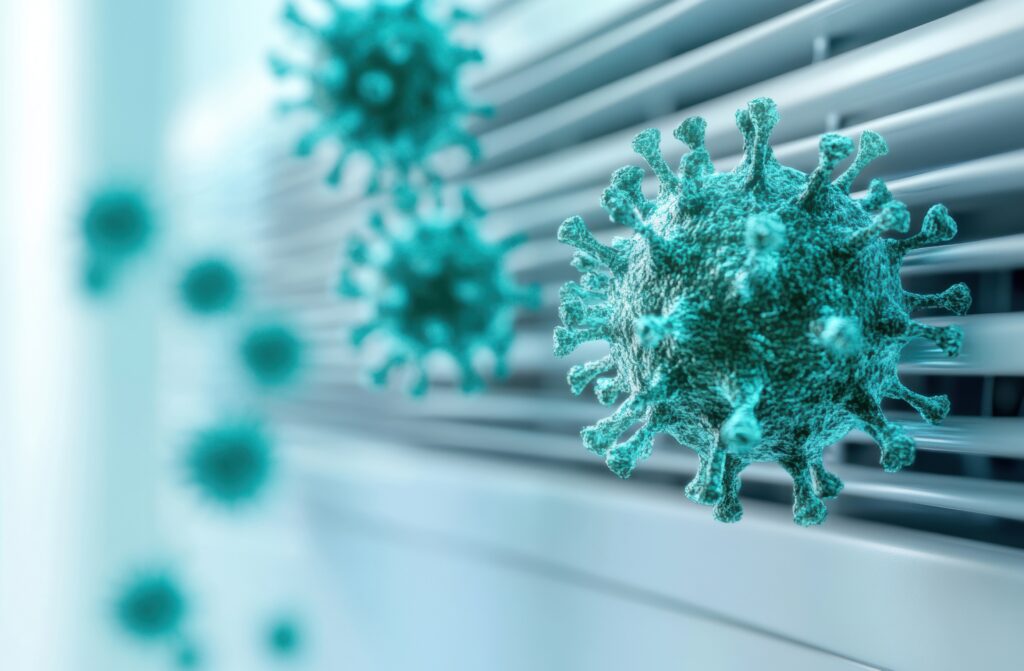Introduction
Breathing clean air in your home is crucial for your family’s health and comfort. Unfortunately, indoor air can often be more polluted than the air outside, filled with dust, pollen, and other contaminants. Poor air quality can lead to health issues like allergies, asthma, and other respiratory problems.
That’s where a well-functioning HVAC system can make a world of difference. Modern HVAC systems are designed to filter and purify the air, improving indoor air quality significantly. They not only regulate the temperature but also help to remove pollutants, ensuring that every breath you take is cleaner and safer.
In this article, we will explore how HVAC systems help you breathe easier. We’ll talk about the importance of indoor air quality, highlight the key features of modern HVAC systems that enhance air quality, provide practical tips for maintaining clean air in your home, and emphasize the role of regular HVAC maintenance in ensuring optimal air quality. Understanding these aspects will help you make informed decisions about your HVAC system and how it benefits your family’s health.
Understanding the Importance of Indoor Air Quality
Indoor air quality greatly impacts our health and well-being. Poor air quality can lead to a range of health issues, from mild allergies to serious respiratory conditions. Contaminants such as dust mites, pet dander, pollen, and even mold can circulate through the air, causing sneezing, coughing, and other allergic reactions.
In addition to allergens, volatile organic compounds (VOCs) from household products, tobacco smoke, and cooking fumes can pollute indoor air. VOCs and other pollutants can cause headaches, dizziness, and long-term health problems. Children, the elderly, and those with pre-existing health conditions are particularly vulnerable to these effects.
Moreover, good indoor air quality can improve overall comfort and productivity. Clean air helps us sleep better, concentrate more effectively, and generally feel more energetic. By prioritizing indoor air quality, we can create a healthier and more pleasant living environment for everyone in the home.
Key Features of Modern HVAC Systems for Improved Air Quality
Modern HVAC systems come equipped with advanced features designed to enhance indoor air quality. These features work together to filter out contaminants, regulate humidity, and keep the air fresh and clean.
1. High-Efficiency Air Filters: Many modern HVAC systems use high-efficiency particulate air (HEPA) filters. These filters can capture up to 99.97% of airborne particles, including dust, pollen, and other allergens, ensuring that the air you breathe is clean.
2. UV Germicidal Lights: Some HVAC systems include UV germicidal lights that kill bacteria, viruses, and mold spores. These lights help prevent the spread of illnesses and reduce the risk of mold growth inside the system.
3. Humidity Control: Proper humidity levels are crucial for maintaining good air quality. HVAC systems with built-in humidifiers and dehumidifiers keep indoor humidity at optimal levels. Correct humidity helps prevent the growth of mold and dust mites, which thrive in moist environments.
4. Advanced Ventilation Systems: Modern HVAC systems often feature advanced ventilation options. These systems exchange indoor air with fresh outdoor air, reducing the concentration of indoor pollutants and ensuring a steady supply of clean air.
5. Air Purification Systems: Some HVAC units come with integrated air purifiers. These devices use various technologies, such as electrostatic filters, to remove even the smallest particles from the air, providing an extra layer of filtration.
By incorporating these advanced features, modern HVAC systems ensure that the air in your home remains clean and healthy, making it easier for you and your family to breathe.
Practical Tips to Enhance Your Home’s Air Quality Using HVAC
Maintaining good air quality in your home doesn’t have to be complicated. Here are some practical tips to make the most of your HVAC system for cleaner air.
1. Change Filters Regularly: The simplest yet most crucial step is to replace your HVAC filters regularly. Over time, filters get clogged with dust and debris, reducing their effectiveness. Aim to change them every three months or according to the manufacturer’s guidelines.
2. Clean Air Vents and Ducts: Dust and dirt can accumulate in your air vents and ducts, circulating back into your home. Regularly vacuum and wipe down vents and consider professional duct cleaning as needed.
3. Monitor Humidity Levels: Use your HVAC system’s built-in humidifier or dehumidifier to maintain an optimal humidity level between 30% and 50%. Proper humidity discourages mold growth and keeps the air comfortable.
4. Install Air Purifiers: Adding standalone air purifiers can help remove more pollutants and allergens from the air. Place them in high-traffic areas like living rooms and bedrooms.
5. Use Eco-Friendly Cleaning Products: VOCs from cleaning products can severely impact indoor air quality. Opt for eco-friendly or natural cleaning solutions to minimize harmful chemicals in your home.
6. Keep Windows and Doors Sealed: Proper insulation helps your HVAC system work more efficiently and keeps outdoor pollutants at bay. Check for and seal any leaks around windows and doors.
7. Vegetation Control: Keep the areas around your outdoor HVAC units free from leaves, plants, and other debris. This helps the system run more effectively and prevents the intake of additional pollutants.
By following these practical tips, you can ensure that your HVAC system helps maintain good indoor air quality, making your home a healthier and more comfortable space.
The Impact of Regular HVAC Maintenance on Breathing Comfort
Regular HVAC maintenance is essential for keeping your system efficient and your indoor air clean. Here’s why regular check-ups can significantly impact your breathing comfort.
A well-maintained HVAC system operates more efficiently. When the system is working at its best, it not only heats and cools your home more effectively but also does a better job of filtering out pollutants. Technicians can clean coils, check for mold and mildew, and ensure that all parts are working correctly, which means cleaner air for you and your family.
Regular maintenance also helps catch small issues before they become big problems. For instance, a clogged filter or a leaky duct can severely impact air quality but may not be immediately noticeable. During a maintenance visit, technicians can spot and fix these issues, preventing them from worsening and ensuring that your system continues to filter air efficiently.
Professionals can calibrate your HVAC system to ensure it’s balanced. An imbalanced system can lead to poor airflow and uneven temperatures, both of which can affect air quality. When your HVAC system is balanced, it circulates air more effectively, keeping it cleaner and at a consistent temperature.
By investing in regular maintenance, you ensure that your HVAC system is not just heating or cooling your home but actively improving your indoor air quality. This leads to easier breathing, fewer allergies, and a more comfortable living environment overall.
Conclusion
Clean air is essential for a healthy and comfortable home. By understanding the importance of indoor air quality and knowing how modern HVAC systems can help, you can take proactive steps to ensure a cleaner living environment. Regularly changing filters, maintaining proper humidity levels, and ensuring good ventilation can make a big difference. Professional maintenance ensures your HVAC system operates at its best, providing you with clean, fresh air year-round.
Don’t overlook the importance of a well-maintained HVAC system for your family’s health and comfort. At AE Air, we specialize in HVAC solutions that help you breathe easier. Contact AE Air today to schedule your professional maintenance check with our HVAC experts and enhance your home’s air quality.



